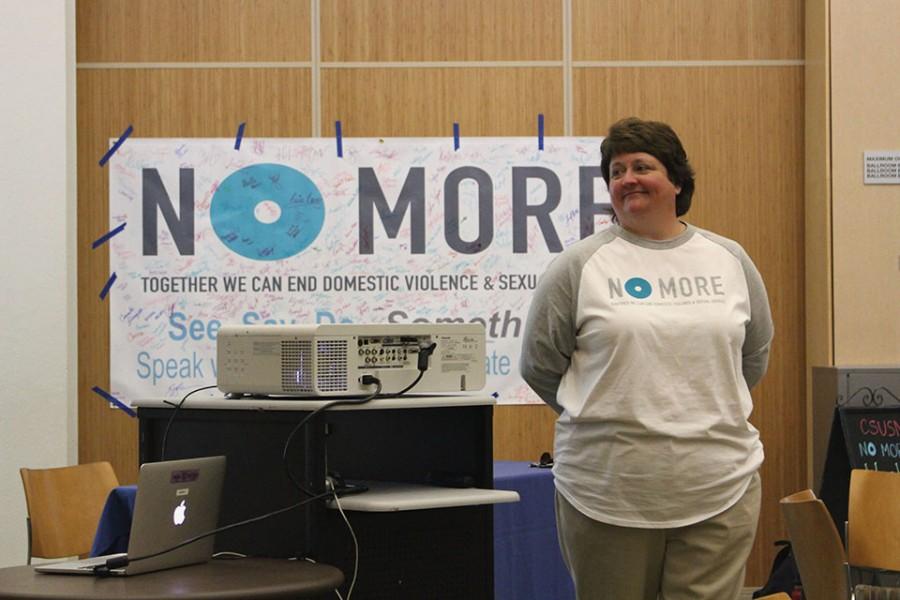CSUSM staff urges students to know their Title IX rights
Event aims to educate students about on-campus resources
March 30, 2016
Student Health and Counseling Services (SHCS) recently hosted an event, as a part of the NO More Week of Action, to help students feel safe and well represented at CSUSM.
“Know You Title IX Rights,” held on Thursday, March 10, was attended by approximately 30 people, and served as an educational effort to teach more students about their rights under Title IX.
Title IX, a law passed in 1972, prohibits any type of gender discrimination, including sexual violence. This law applies to every educational program across the country that receives federal funding.
Dr. Bridget Blanshan, CSUSM’s Title IX Coordinator, was the first to speak and explained some common effects that a survivor of sexual violence might experience, which include physical impacts and longstanding impacts to relationships, self esteem and education.
“This is a direct impact of the trauma that those students have experienced … Anytime someone is impacted in a way that it limits a student’s ability to benefit from the offerings of the university and the advantages of higher ed[ucation], then that is discrimination, as long as it is based on one of those protected statuses,” said Dr. Blanshan.
Protected statuses include, and are not limited to those who are discriminated based on gender, ethnicity, race, age and disability.
According to Dr. Blanshan, when it comes to Title IX there are certain obligations as an institution of higher education, as well as an area of jurisdiction.
“We really have three basic obligations. We need to stop harassment, remedy both the short term and long term effects and we need to prevent it from happening again,” she said.
As far as the university’s jurisdiction, Dr. Blanshan said that they have to investigate the role in which the harassment occurred and whether or not the university has a relationship with the harasser.
In discussing bystander intervention, Dr. Blanshan said that more than half of a surveyed student population said that they had seen a situation where they should have intervened, but chose not to.
“In our culture in large part, we tend to discourage people from doing good things by saying ‘it’s really none of your business,’” she said.
She also said that many of these instances are simply not reported because of a variety of reasons, such as self blame or not wanting to talk about it.
“The one thing where we are responsible to adjust students’ thinking is the impression that nothing will be done.”
Dr. Blanshan also talked about domestic violence and according to the presentation, girls and women, ages 16 to 24, experience the highest rate of intimate partner violence, which is almost triple the national average. 43 percent of college women alone have reported violent or abusive behavior in a relationship.
“We are getting information to our faculty and staff so that they know how to effectively support students. Also, we have orientation and online trainings for students to build awareness about these issues and to de-normalize what some people think is normal college behavior,” she said.
Dr. Blanshan went on to explain the importance of interrupting rape culture and changing the conversation that surrounds these types of issues.
Other speakers at the event included Sexual Violence Advocate and Educator Christa Wencl, SHCS Health Educator Cathy Nguyen and SHCS Medical Director Karen Nicholson.
Students who have experienced any type of gender-based discrimination are encouraged to take advantage of on campus resources including Christa Wencl, Bridget Blanshan, the University Police Department or the Dean of Students Office.
For more information on Title IX, visit csusm.edu/title9.


